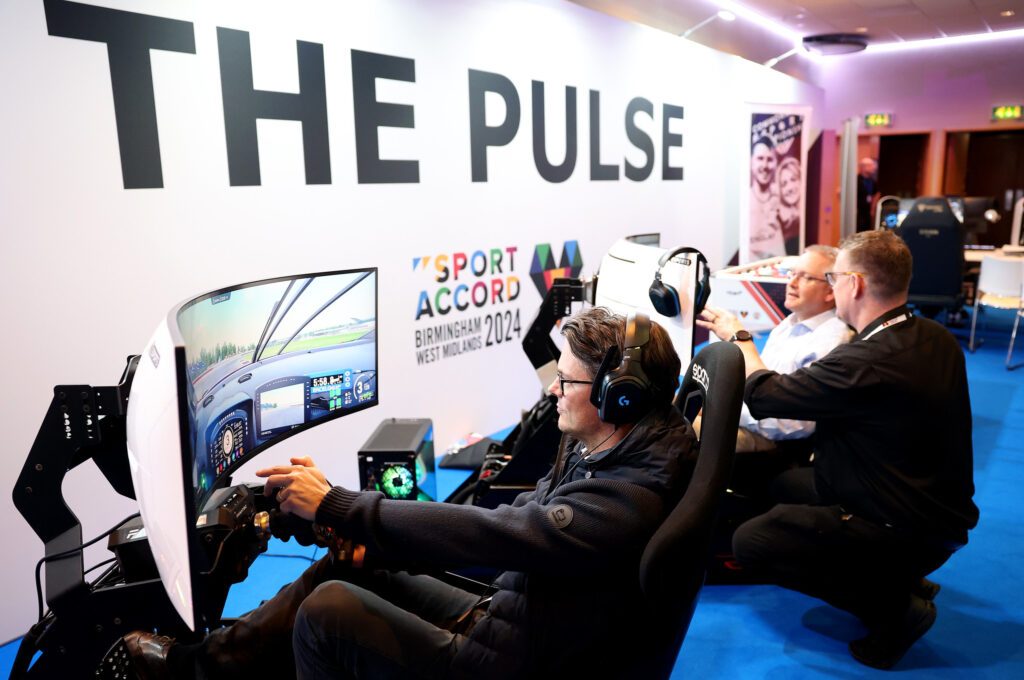SportAccord Throws the Door Wide Open to Esports
April 17, 2024
Gaming was a high-profile theme at SportAccord in Birmingham last week and it’s clear that the traditional sports world represented by the international federations has finally grasped that there has been a shift of passion and influence in our culture that is forcing them to play catch-up.
In the first place it’s just about scale. There are close to three billion gamers worldwide. Gaming industry revenues are estimated to exceed $300 billion annually. The opening conference interview with Epic Games co-founder Mark Rein and Nate Nanzer, the company’s head of global partnerships, made clear that if you want to connect with today’s young people you will find them on gaming platforms like their Fortnite.
Ever since gaming emerged, sports have tried to get into the space by creating or endorsing digital versions of their own sports. With a few obvious exceptions like soccer, the NFL and the NBA, it doesn’t work.
More important, it’s not the point. Young people are gaming because of the experience of the games they play, like DOTA2 or League of Legends or Fortnite, and those games have cost millions to develop. As many sports have already learned, you can’t just plonk something like volleyball or archery into a digital environment and expect it to be compelling.
“You need to ask what your objective is,” Nanzer said. “If the objective is to do esports because you think it will a new revenue stream, I don’t think that is the best path. But if you want do esports because you think it’s an authentic way to engage with the community, I think you can find success there.”
Crucially, he made clear that some of the technology that makes Fortnite so engaging, not to say addictive, is now available to sports in Epic Games’ proprietary Unreal Engine. ESPN is already using it to power graphics in broadcast sports coverage and even experimenting with incorporating characters from Disney’s Toy Story into sports presentation.
The SportAccord hosts were keen to highlight esports in the exhibition area. Although esports, in which participants compete in games like the ones mentioned above, is a relatively small part of gaming as a whole, revenues are already approaching $2 billion.
The popularity and engagement are such that one of the speakers on an esports panel made perhaps the most striking remarks of the conference.
Alban Dechellotte, the CEO of the G2 Esports team, noted that to date the trend has been for teams in existing traditional sports like soccer to have esports teams with the brands of their clubs. Perhaps the time is near, he commented, when it will be the other way around, and traditional sports teams will be branded G2 and piggy-back on the fandom of esports. This is especially relevant in Asian markets.
Governance is always a theme at SportAccord. The traditional governance model with an international federation at the top of the pyramid is one that’s being promoted for esports and it was advocated in the conference by Paul Foster, CEO of the Global Esports Federation.
In principle the esports world does not need to go this route. Organisers are free to hold their competitions just the way they are already doing very successfully without the baggage of any overarching governance structures.
However, if they want to tap into public funding or use publicly owned facilities or even have esports played in schools on rainy days, they might benefit from some form of traditional governance. In some countries they might have no choice but to be part of the formal sports hierarchy.
But governance cannot do away with the fundamental difference between gaming-based esports and sport as we have known it. Games belong to the private sector. They are produced, owned and licensed by companies like Epic Games and Riot Games and Activision Blizzard, which is quickly being integrated into new owner Microsoft as you read this. Sports are not owned by anyone. Federations only make the rules by which they are played. It appears that this will always be an issue, and perhaps an obstacle, when it comes to a meeting of the gaming industry and sport.
The writer Jay Stuart is content director of iSportConnect.


